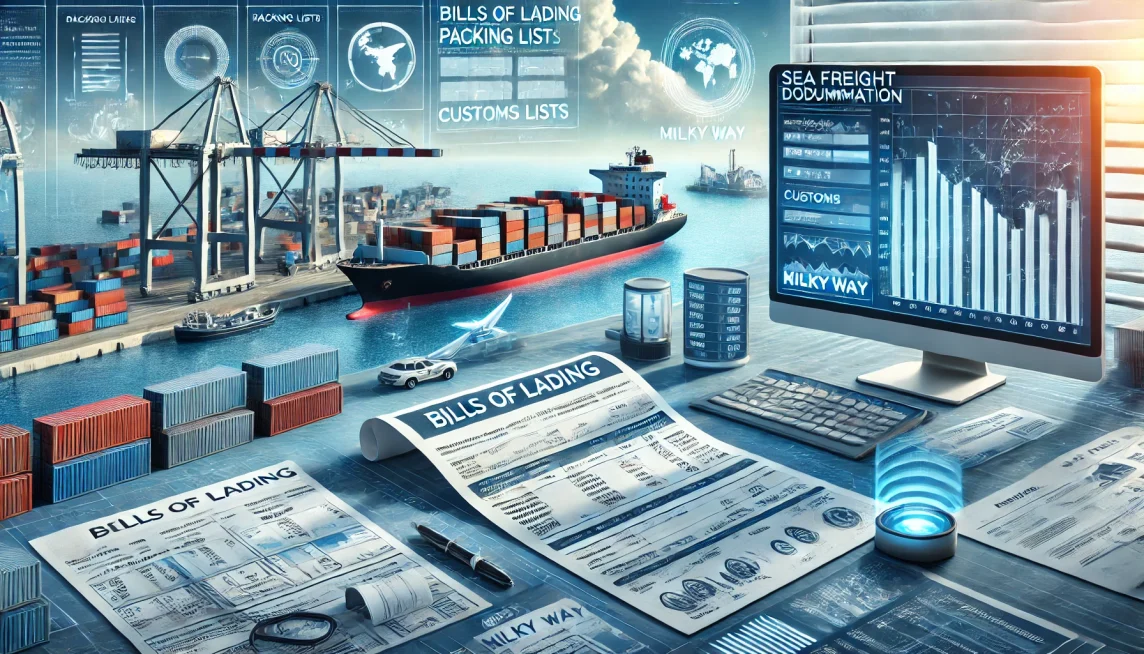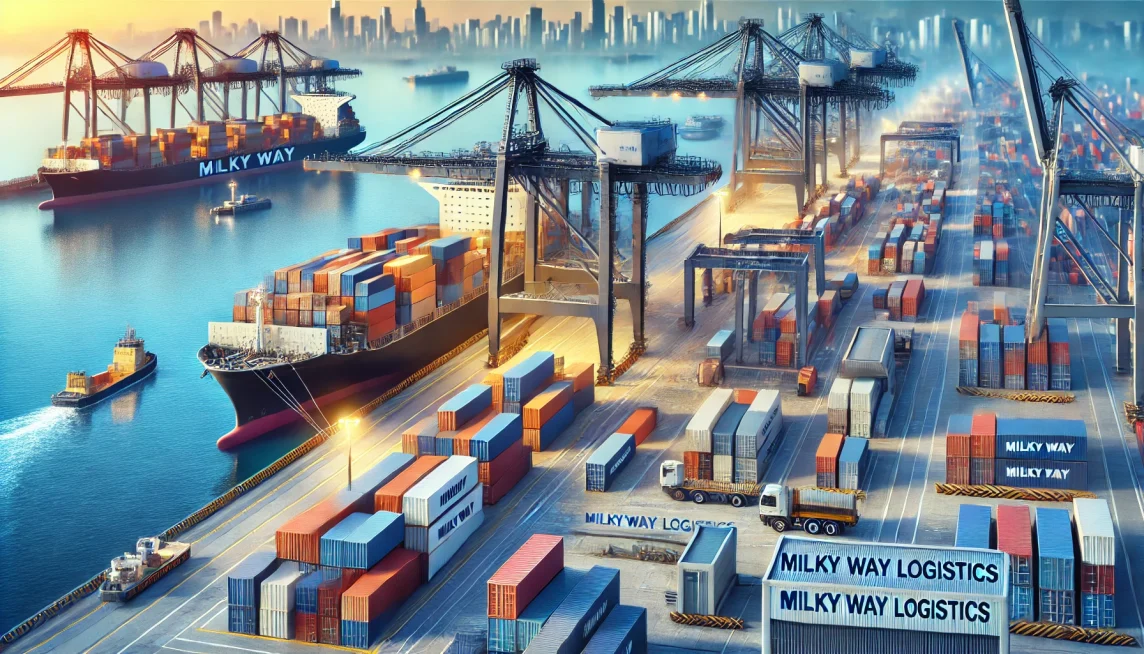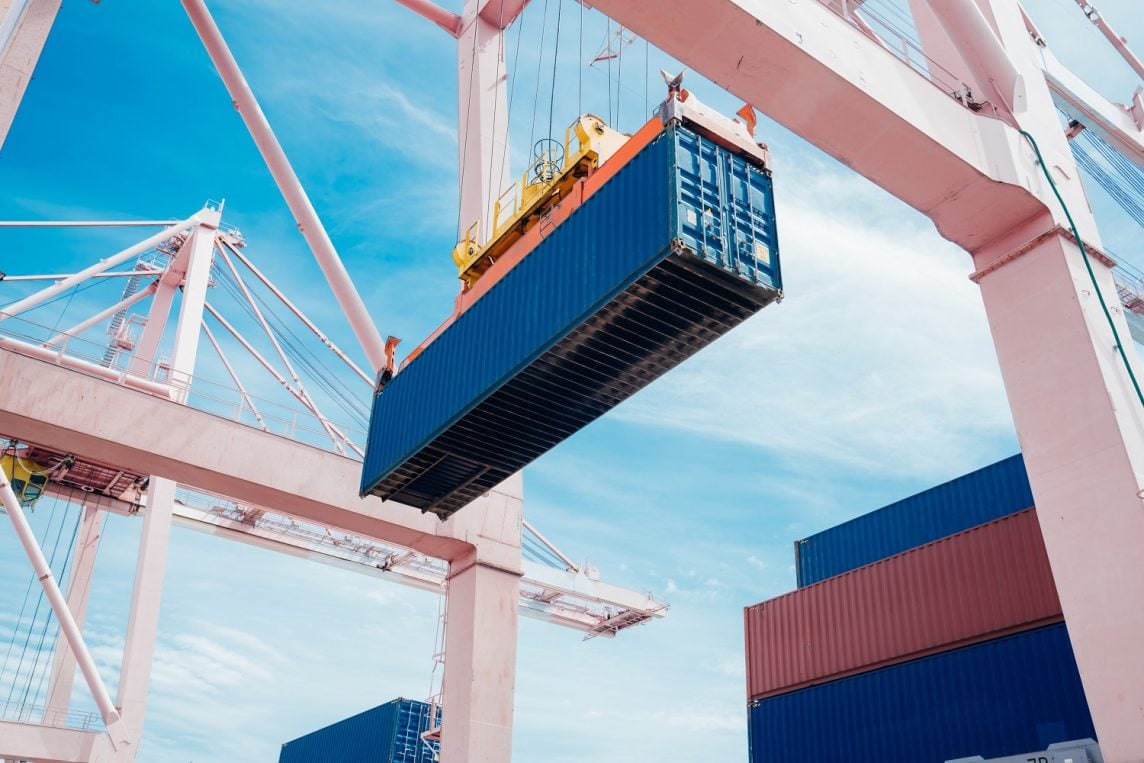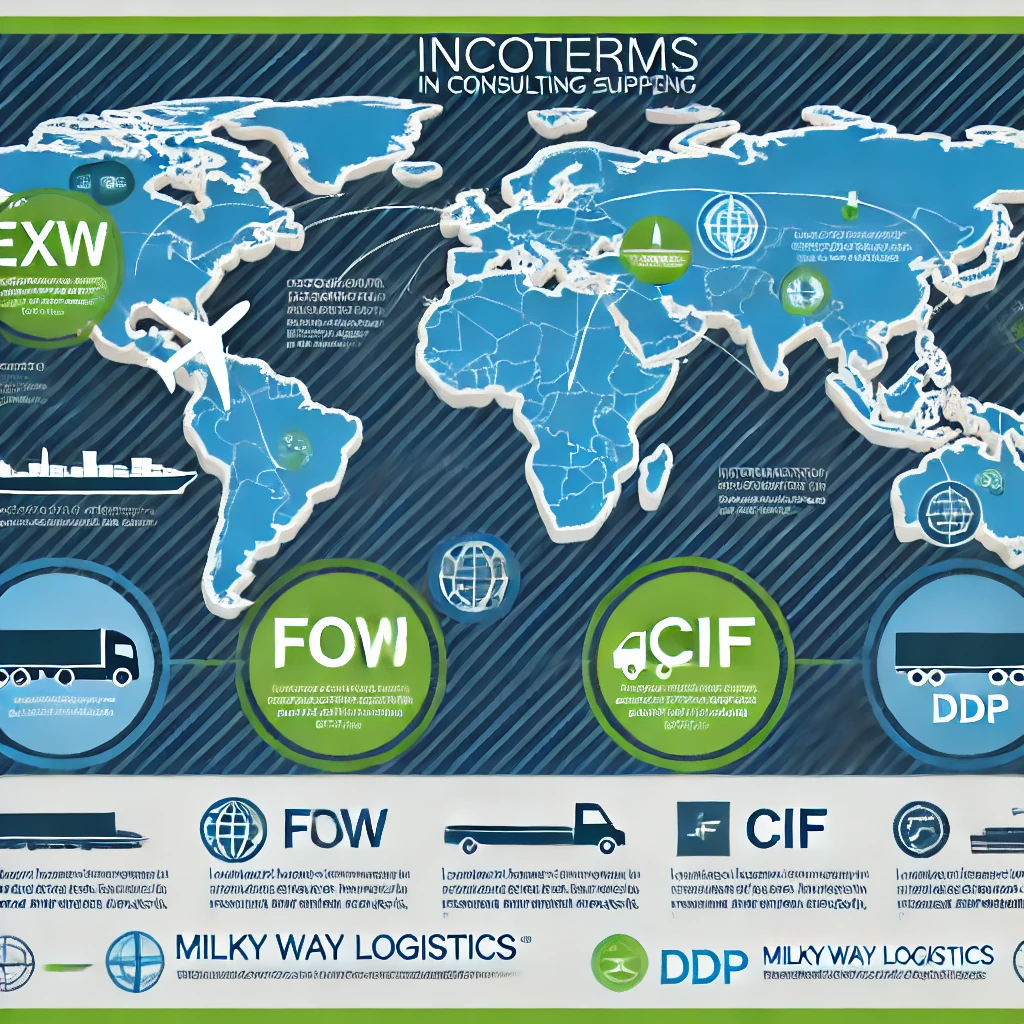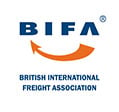Sustainable Sea Freight Solutions: How Milky Way Logistics Is Reducing its Carbon Footprint
The logistics industry plays a pivotal role in global trade, but it also contributes significantly to greenhouse gas emissions. As the world becomes more environmentally conscious, businesses are seeking greener logistics solutions to minimize their environmental impact. Sustainable practices in sea freight have emerged as a crucial focus for freight forwarders, including Milky Way Logistics, which is leading the way with innovative eco-friendly solutions.
In this blog, we’ll explore how sustainable sea freight practices are reshaping the industry, highlighting Milky Way Logistics’ commitment to reducing its carbon footprint and helping businesses achieve their sustainability goals.
Why Sustainable Sea Freight Matters
Global sea freight accounts for approximately 3% of global CO2 emissions, making it a critical area for sustainability initiatives. With increasing pressure from governments, consumers, and international organizations, the logistics industry must adopt environmentally responsible practices.
Key Drivers of Sustainable Sea Freight:
- Regulations: Stricter environmental regulations, such as the IMO 2020 sulfur cap, mandate the reduction of emissions in sea freight.
- Consumer Demand: Businesses are increasingly prioritizing sustainable logistics to align with customer expectations and corporate social responsibility goals.
- Cost Efficiency: Sustainable practices often lead to operational efficiencies, resulting in cost savings over time.
Milky Way Logistics is at the forefront of this green transition, integrating sustainable practices into every aspect of our sea freight services.
Key Sustainable Practices in Sea Freight
Let’s dive into the eco-friendly strategies that Milky Way Logistics employs to provide sustainable sea freight solutions.
1. Optimized Fuel Use and Alternative Fuels
Fuel consumption is one of the largest contributors to emissions in sea freight. Milky Way Logistics works with carriers that prioritize fuel efficiency and adopt alternative fuels.
Our Initiatives:
- Low-Sulfur Fuel: Supporting carriers that use low-sulfur fuel, which reduces harmful sulfur oxide (SOx) emissions.
- Biofuels: Encouraging the adoption of biofuels derived from renewable resources, such as algae and waste products.
- Hydrogen and Ammonia Fuels: Exploring partnerships with carriers experimenting with hydrogen and ammonia as clean fuel alternatives.
By investing in carriers committed to fuel efficiency, Milky Way Logistics ensures that our clients’ shipments are transported with minimal environmental impact.
2. Slow Steaming: Reducing Emissions Through Speed Optimization
Slow steaming, the practice of operating vessels at reduced speeds, has become a widely adopted strategy for lowering fuel consumption and emissions.
Benefits of Slow Steaming:
- Lower Fuel Usage: Reducing speed can cut fuel consumption by up to 30%, significantly lowering CO2 emissions.
- Cost Savings: Less fuel consumption means lower operational costs, which can translate into savings for clients.
- Extended Vessel Lifespan: Operating ships at slower speeds reduces wear and tear, extending the life of the vessel.
Milky Way Logistics incorporates slow steaming into its shipping schedules whenever feasible, balancing sustainability with timely delivery.
3. Green Shipping Initiatives and Partnerships
Collaborating with environmentally conscious partners is central to Milky Way Logistics’ approach to sustainable sea freight. We actively seek out carriers and port authorities that prioritize green practices.
Key Green Initiatives:
- Eco-Friendly Ports: Partnering with ports that use renewable energy sources, such as wind and solar, and offer shore power for docked vessels.
- Sustainable Container Management: Promoting the use of recyclable and reusable containers to reduce waste.
- Carbon Offset Programs: Investing in reforestation projects and renewable energy initiatives to offset the emissions generated by sea freight.
Through these partnerships, Milky Way Logistics ensures that every aspect of our sea freight operations aligns with sustainability goals.
4. Advanced Route Optimization
Efficient route planning is essential for reducing fuel consumption and emissions. At Milky Way Logistics, we use cutting-edge technology to optimize shipping routes.
How Route Optimization Helps:
- Shorter Transit Times: Selecting the most direct routes reduces the distance traveled, saving fuel and time.
- Avoiding Congestion: Real-time data allows us to avoid congested ports and waterways, further reducing emissions.
- Improved Fleet Utilization: Strategic route planning ensures that vessels operate at optimal capacity, minimizing empty space.
Our advanced logistics technology enables clients to track their shipments in real-time while benefiting from the efficiencies of optimized routes.
5. Revolutionizing Cargo Handling with Renewable Energy
Ports play a crucial role in the sea freight process, and their energy use significantly impacts the industry’s carbon footprint. Milky Way Logistics works with ports that prioritize renewable energy and energy-efficient operations.
Sustainable Port Practices:
- Electric Cranes and Vehicles: Ports equipped with electric cranes and vehicles reduce reliance on fossil fuels.
- Shore Power: Allowing ships to connect to the electric grid while docked eliminates the need for running engines, cutting emissions.
- LED Lighting: Using energy-efficient lighting systems reduces energy consumption during cargo handling.
By choosing eco-friendly ports, Milky Way Logistics ensures that our clients’ shipments contribute to a greener logistics ecosystem.
How Milky Way Logistics Supports Your Sustainability Goals
Milky Way Logistics goes beyond adopting sustainable practices; we actively help our clients achieve their own sustainability objectives.
1. Carbon Reporting
We provide detailed carbon footprint reports for each shipment, enabling clients to track and manage their environmental impact.
2. Green Logistics Consulting
Our team of experts works with clients to develop tailored logistics strategies that prioritize sustainability without compromising efficiency.
3. Promoting Sustainable Packaging
We encourage clients to use eco-friendly packaging materials, such as biodegradable plastics and recyclable containers, to reduce waste.
4. Supporting Global Sustainability Initiatives
Milky Way Logistics participates in global initiatives, such as the Clean Cargo Working Group, to promote sustainability across the logistics industry.
The Benefits of Choosing Sustainable Sea Freight with Milky Way Logistics
By partnering with Milky Way Logistics, businesses gain access to a range of benefits that go beyond environmental responsibility:
- Regulatory Compliance: Stay ahead of evolving environmental regulations with our sustainable sea freight solutions.
- Cost Efficiency: Many green practices, such as slow steaming and route optimization, also result in significant cost savings.
- Enhanced Brand Reputation: Demonstrating a commitment to sustainability helps businesses build trust with environmentally conscious consumers.
The Future of Sustainable Sea Freight
The sea freight industry is on a journey toward a greener future, driven by innovation, collaboration, and a shared commitment to protecting the environment. Emerging technologies, such as fully electric ships and AI-powered logistics systems, are expected to play a significant role in shaping the future of sustainable sea freight.
Milky Way Logistics is dedicated to staying at the forefront of these advancements, ensuring that our clients benefit from the latest developments in green logistics.
Conclusion: Partner with Milky Way Logistics for Sustainable Sea Freight Solutions
At Milky Way Logistics, we understand the importance of balancing efficiency with environmental responsibility. Our commitment to sustainable sea freight ensures that your goods are transported with minimal environmental impact, helping you meet your sustainability targets and contribute to a greener planet.
Whether you’re looking to reduce your carbon footprint, optimize your supply chain, or align with global sustainability initiatives, Milky Way Logistics is here to help. Contact us today to learn more about our sustainable sea freight solutions and how we can support your business.

